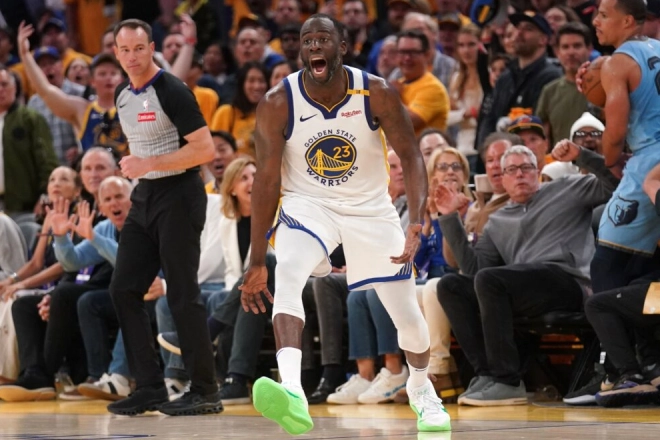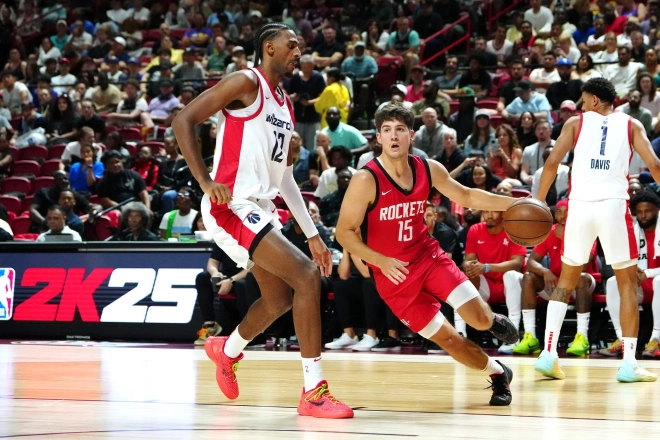What We Can Learn About Drafting Rookies in NBA Fantasy and DFS Games
The hype around many NBA rookies is unbelievable. We end up drafting some of these guys in our NBA fantasy leagues because we buy into the hype and believe they will be the next rookie superstar. But it doesn’t always work out that way.
Sometimes players pan out; some don’t. Some go on to be valuable parts of your NBA fantasy roster; others you drop faster than a superstar’s shoe line. But what if you could predict which rookies would pan out and become relevant for fantasy purposes?
The obvious answer is to look for guys who are more likely to start and/or get a lot of playing time right away. But if it was that easy… So, I got that question stuck in my head this weekend and decided to investigate.
Here’s what I discovered.
Preseason NBA Fantasy Projections for Rookies
My first inclination regarding rookies when I’m drafting my NBA fantasy team is to check out what the ‘experts’ think about the fantasy value of the incoming class. Expectations were not as high for this class as the last, but ESPN named the following as draft-worthy rookies:
- Reed Sheppard, guard, Houston Rockets (No. 3 pick)
- Stephon Castle, guard, San Antonio Spurs (No. 4 pick)
- Zach Edey, center, Memphis Grizzlies (No. 9 pick)
- Donvan Clingan, center, Portland Trail Blazers (No. 7 pick)
After reading projections and predictions from several other sites, the following players also had high expectations:
- Matas Buzelis, forward, Chicago Bulls (No. 11 pick)
- Alex Sarr, forward, Washington Wizards (No. 2 pick).
- Kel'El Ware, center, Miami Heat (No. 15 pick)
- Zaccharie Risacher, forward, Atlanta Hawks (No. 1 pick)
- Yves Missi, center, New Orleans Pelicans (No. 21 pick)
No surprise—we’ve got six guys drafted inside the top ten and three taken outside the top ten, but in the first round. Let’s see how the season played out for them.
NBA Fantasy Date: Our Nine-Rookie Sample Size
Here are some of the basic numbers, including the average fantasy points per game, of the nine rookies as mentioned above (stats from FantasyData.com). More categories than these were taken into account:
|
Player |
TEAM |
FPTS/game |
School/County |
grade/age |
MIN |
PTS |
REB |
AST |
|
Zaccharie Risacher (1) |
ATL |
19.8 |
France |
20 |
24.6 |
12.6 |
3.6 |
1.2 |
|
Alex Sarr (2) |
WAS |
27 |
Australia |
20 |
27.1 |
13 |
6.5 |
2.4 |
|
Reed Sheppard (3) |
HOU |
9.7 |
Ky |
Fresh. |
12.6 |
4.4 |
1.5 |
1.4 |
|
Stephon Castle (4) |
SAS |
25.4 |
UConn |
Fresh. |
26.7 |
14.7 |
3.7 |
4.1 |
|
Donovan Clingan (7) |
POR |
20.9 |
UConn |
Soph. |
19.8 |
6.5 |
7.9 |
1.1 |
|
Zach Edey (9) |
MEM |
23 |
Purdue |
Senior |
21.5 |
9.2 |
8.3 |
1 |
|
Matas Buzelis (11) |
CHI |
15.9 |
G league |
20 |
18.9 |
8.6 |
3.5 |
1 |
|
Kel'el Ware (15) |
MIA |
22.1 |
Indiana |
Fresh. |
22.2 |
9.3 |
7.4 |
0.9 |
|
Yves Missi (21) |
NOP |
23.6 |
Baylor |
Fresh. |
26.8 |
9.1 |
8.2 |
1.4 |
To put their performance into perspective, let’s take a look at the stats for the top ten NBA fantasy rookies:
|
Player (Draft Pos.) |
TEAM |
FPTS/game |
School |
grade/age |
MIN |
PTS |
REB |
AST |
|
Alex Sarr (2) |
WAS |
27 |
Australia |
20 |
27.1 |
13 |
6.5 |
2.4 |
|
Stephon Castle (4) |
SAS |
25.4 |
UConn |
Fresh. |
26.7 |
14.7 |
3.7 |
4.1 |
|
Yves Missi (21) |
NOP |
23.6 |
Baylor |
Fresh. |
26.8 |
9.1 |
8.2 |
1.4 |
|
Zach Edey (9) |
MEM |
23 |
Purdue |
Senior |
21.5 |
9.2 |
8.3 |
1 |
|
Kel'el Ware (15) |
MIA |
22.1 |
Indiana |
Fresh. |
22.2 |
9.3 |
7.4 |
0.9 |
|
Bub Carrington (14) |
WAS |
21.6 |
Pitt |
Fresh. |
30 |
9.8 |
4.2 |
4.4 |
|
Isaiah Collier |
UTA |
21.4 |
USC |
Fresh. |
25.9 |
8.7 |
3.3 |
6.3 |
|
Donovan Clingan (7) |
POR |
20.9 |
UConn |
Soph. |
19.8 |
6.5 |
7.9 |
1.1 |
|
Kyle Filipowski (32) |
UTA |
20.4 |
Duke |
Soph. |
21.1 |
9.6 |
6.1 |
1.9 |
|
Zaccharie Risacher (1) |
ATL |
19.8 |
France |
20 |
24.6 |
12.6 |
3.6 |
1.2 |
NBA Fantasy Data: Rookie Observations
- Age is not particularly important; only one of the top ten players played their senior season in college, while five of the top seven were one-and-done.
- The No. 1 pick in the draft may be the most likely rookie to play and log significant minutes from the start, but that does not mean he’ll be significant in fantasy circles.
- Scoring is essential, but players who produced in more than just scoring earned more fantasy points; only three of the top ten averaged in double digits. Of the other seven, five averaged 6+ rebounds per game as well.
- Conference breakdown of top ten: international players—3; Big Ten—3; ACC- 2; Big East—2.
- Draft position is a good indicator, but doesn’t tell the whole picture; nine of the top ten were drafted in the first round; of them, five were in the top ten.
- Of the nine expected by experts to produce, only one averaged fewer than ten fantasy points a game (Reed Shapard). Five averaged 20+ fantasy points a game.
- Nine of the top ten averaged 20+ minutes of game time a month.
- Don’t sleep on UDFA, as two have finished inside the top 25.
The most definitive thing I can say about this data is that the subject matter needs further study—more data points, different years, etc. To draw truly useful conclusions, I just need more.
For now, I’m comfortable with saying a few things: (1) age/collegiate experience is not too important, (2) being drafted high helps, but top draft picks are far from a lock to produce, and (3) Look for well-rounded players; don’t count on someone just because he scores a lot.
We’ve got a lot of time before the 2025-26 NBA fantasy season. Perhaps by then I’ll have the time to delve into this more deeply, allowing me to make more definitive conclusions.





